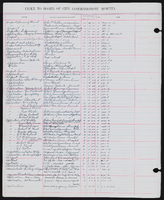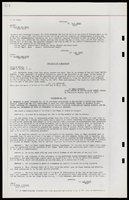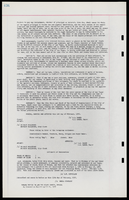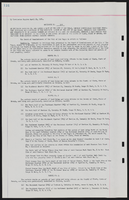Search the Special Collections and Archives Portal
Search Results
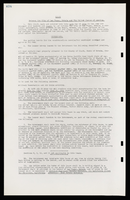
Las Vegas Sun Photographs
Identifier
Abstract
The Las Vegas Sun Photographs depict significant events in Las Vegas, Nevada from 1948 to 1989 that were covered by the newspaper. The photographs partially document the gubernatorial, senatorial, mid-term, and local elections in Nevada in 1982. The photographs also include protests by African Americans for better wages and renters for fair housing practices, McCarran Airport, protests against the Nevada Test Site, the Las Vegas Strip and downtown Las Vegas, hotels and casinos, political events, parades, dedications of buildings, and aerial photographs of the city. The photographs also depict politicians during campaign events and fundraisers, including President Ronald Reagan; U.S. Senators Howard Cannon, Pat McCarran, Chic Hecht, Paul Laxalt, and Harry Reid; Nevada governors Mike O'Callaghan and Robert List; and Lieutenant Governor Bob Cashell.
Archival Collection
Chester R. Longwell Professional Papers
Identifier
Abstract
The Chester R. Longwell Professional Papers (1886-1974) document Longwell's professional career as a geologist and his pioneering field work in Clark County, Nevada. Included are Longwell's field notes; manuscripts, articles and speeches related to geology; personal and business correspondence; professional publications; subject and name files; specimen tags; photographic prints, negatives, and slides; and geological and topographical maps, primarily of Nevada, California, Arizona, and Utah.
Archival Collection
Byrd Wall Sawyer Collection
Identifier
Abstract
The Byrd Wall Sawyer Collection primarily consists of Byrd's research files on Nevada from 1930 to 1970. The materials concentrate on her monograph, "Nevada Nomads," as well as her co-authored textbook, "Here is Nevada." The collection also includes speeches, journal articles, memos, research note cards and papers, correspondence, informational booklets and pamphlets, maps, photographs, audiovisual materials, and newspaper articles and clippings.
Archival Collection



